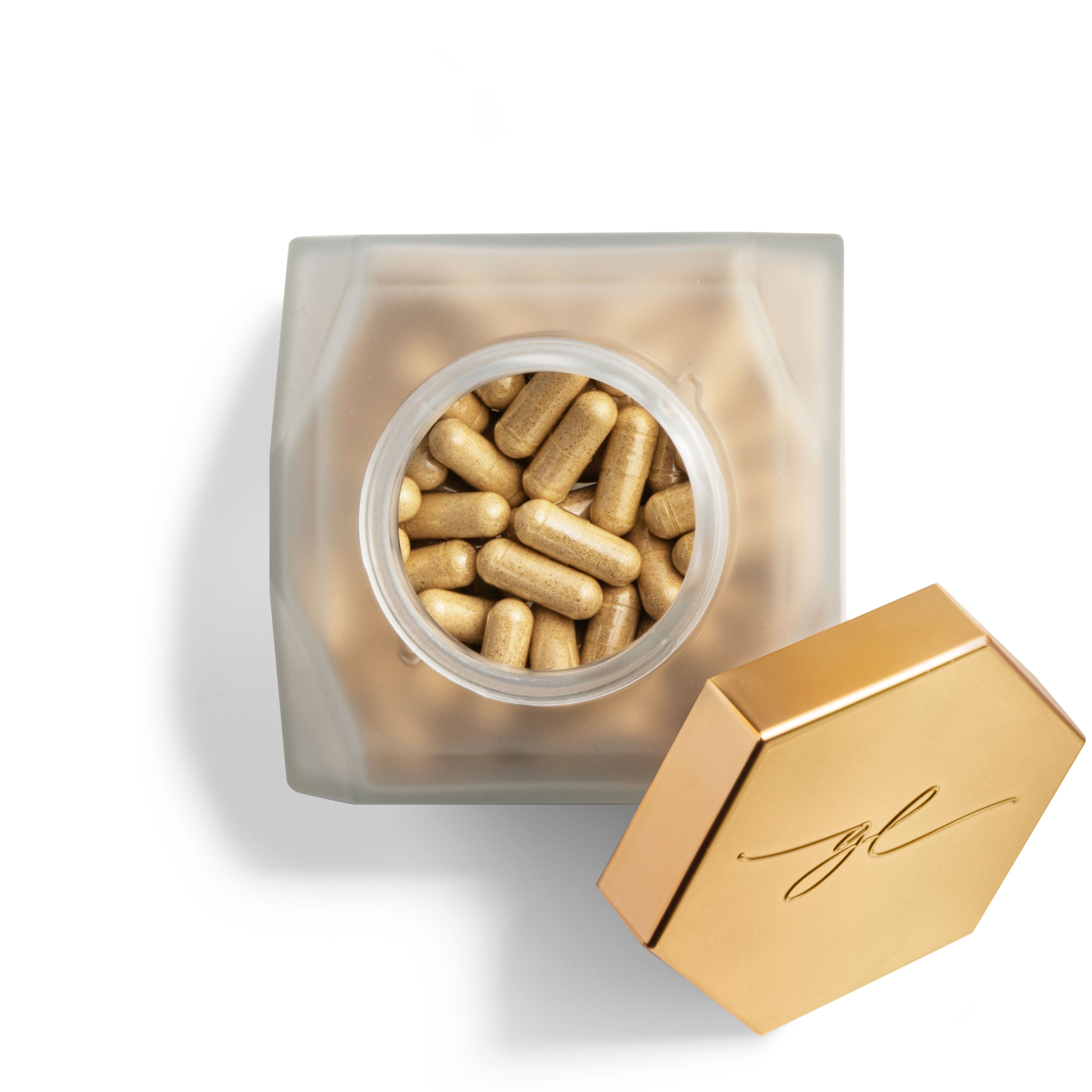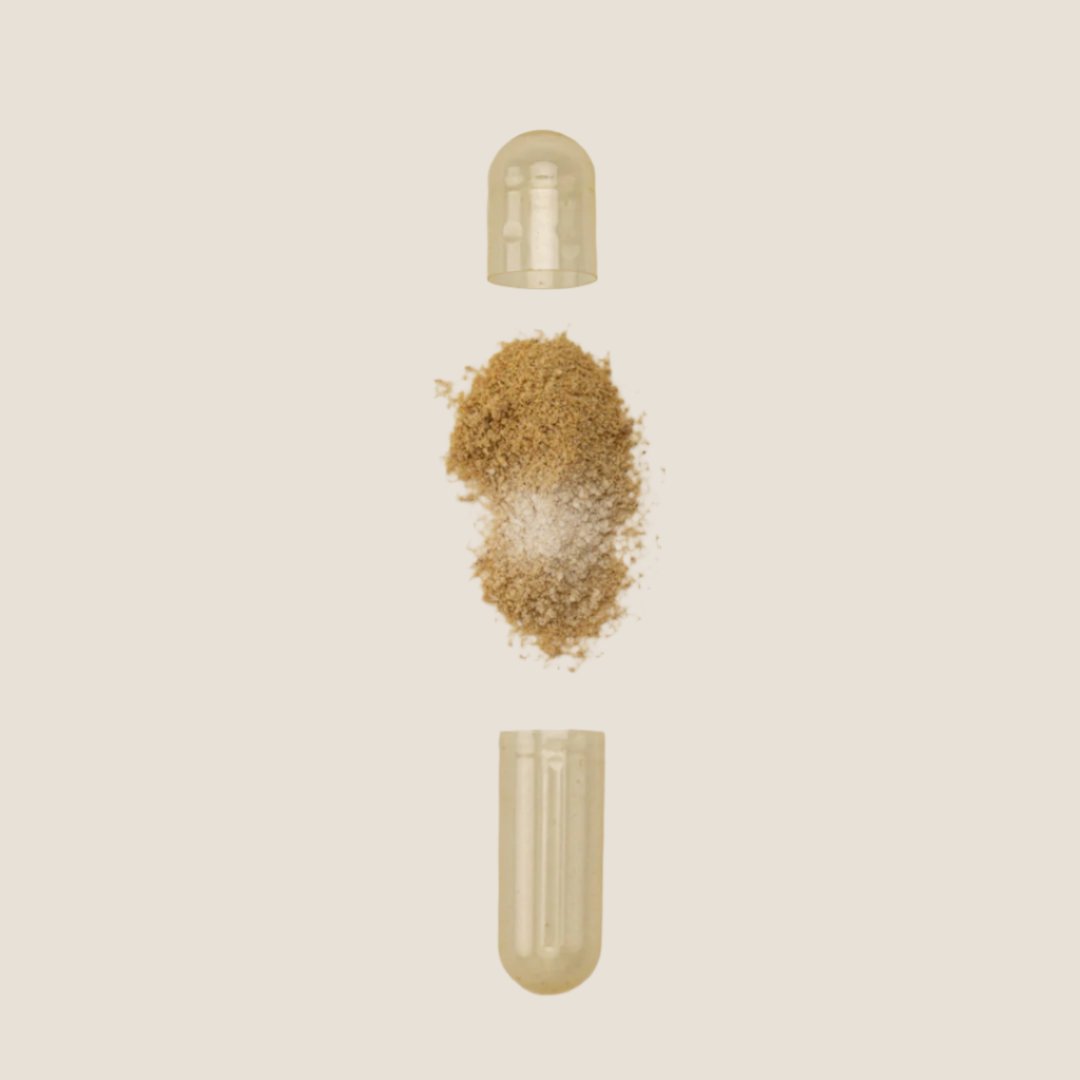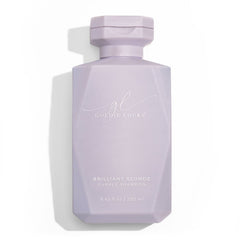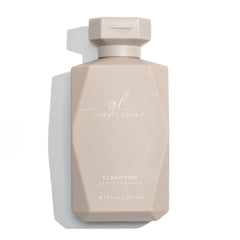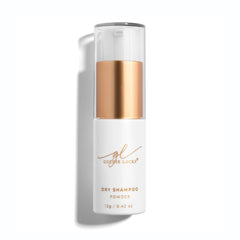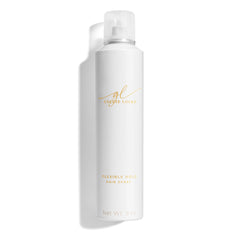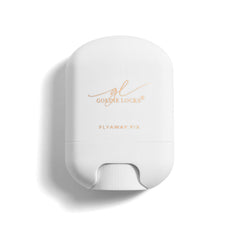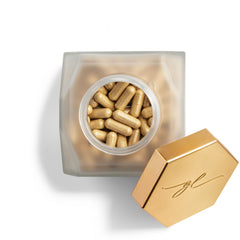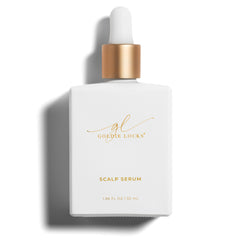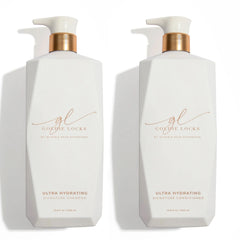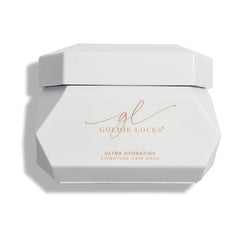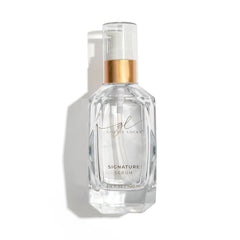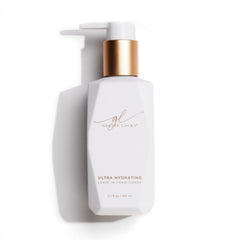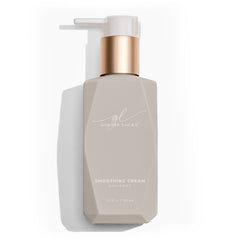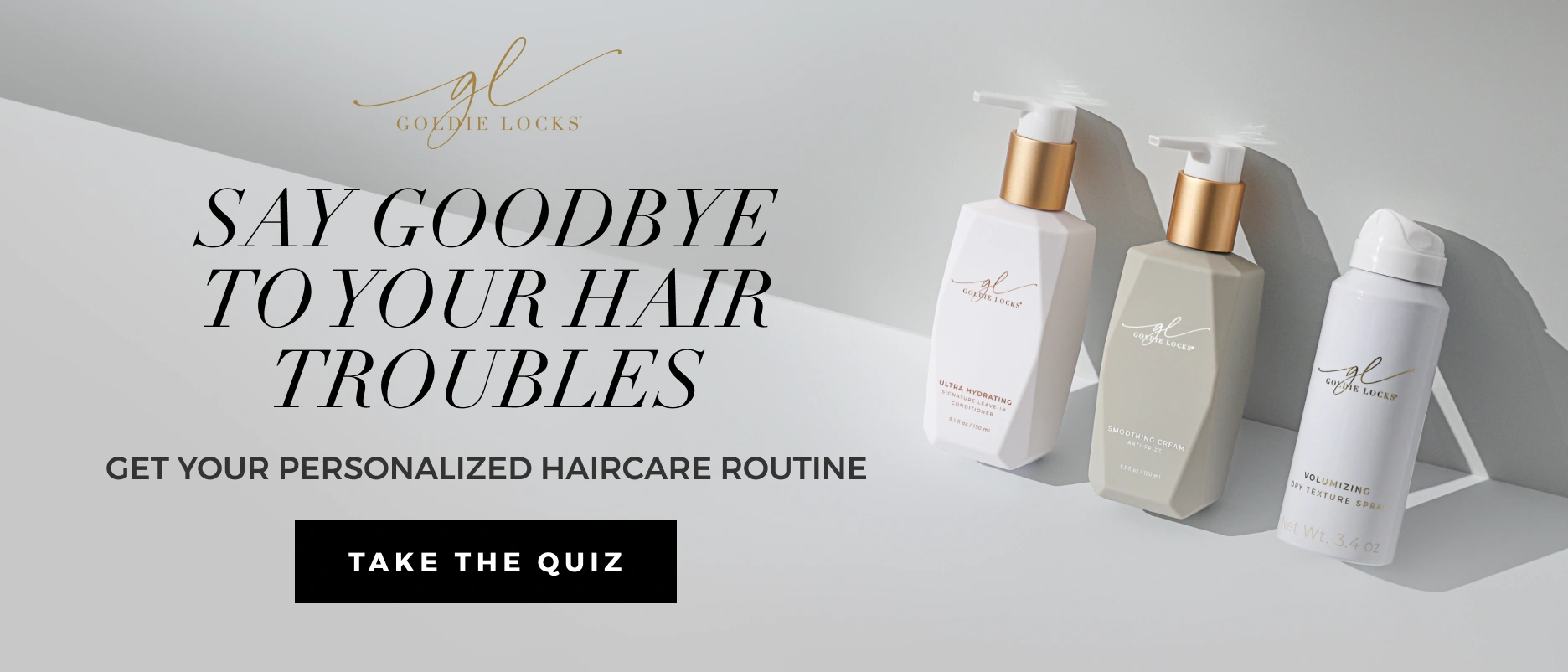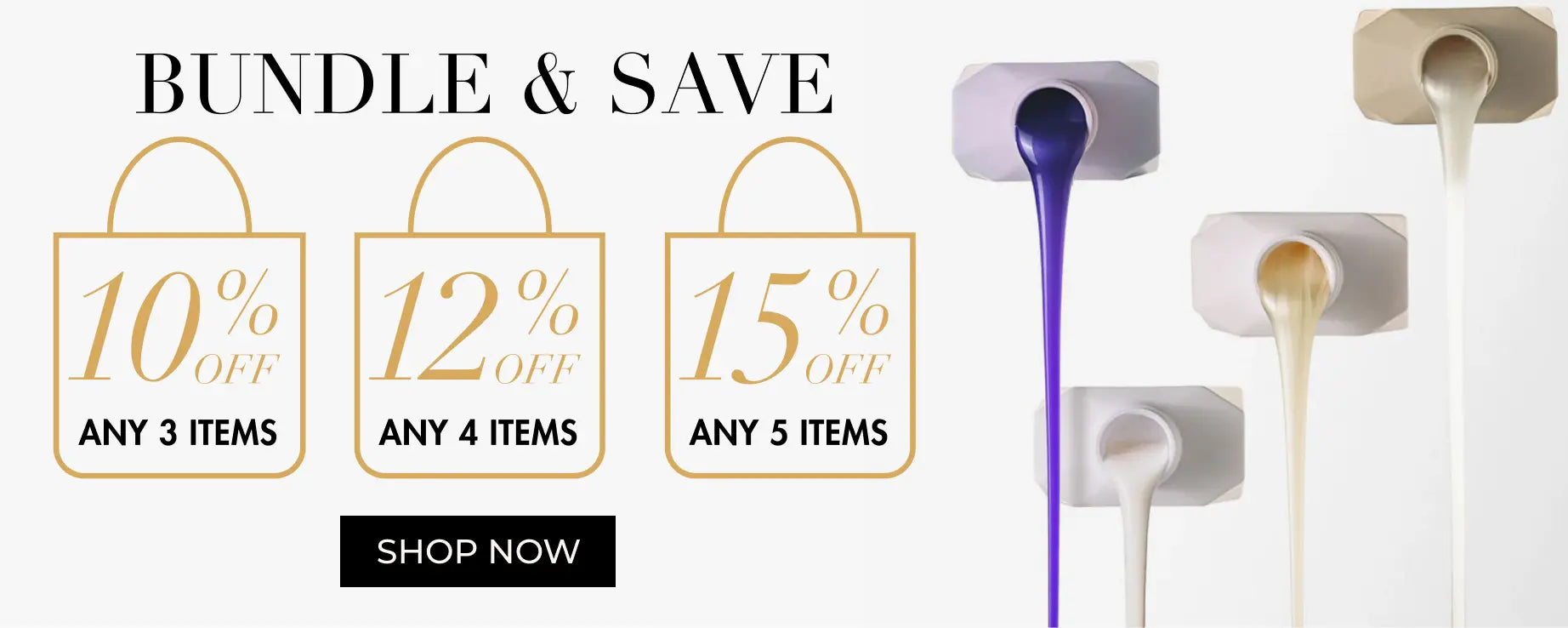Welcome to our latest post where we dive deep into a topic that many of us deal with daily—oily hair. We've all been there, looking in the mirror at locks that look weighed down and greasy.
But fear not! Oily hair doesn't have to be your fate. In this comprehensive guide, we're going to explore why your hair might be overindulging in oil production, how to fix it without starting a battle with your scalp, and the best products to keep your mane looking and feeling its best.
Whether you're questioning "Why is my hair so oily?" after a fresh wash, or you're hunting down the holy grail of shampoos for oily thin hair, we're here to unfold the mysteries. So let's explore this topic together, turning those greasy days around with our expertise and a little help from some stellar hair care heroes.
Index
What is Oily Hair?

Oily hair can feel like a daily annoyance, but it's actually a sign of your scalp doing its job—sometimes a little too well. Let's break it down:
- Sebum Production: At the root of oily hair is sebum, the natural oil our scalps produce for protection and hydration.
- Oily Hair Defined: When our scalp produces more sebum than necessary, it can leave our hair looking and feeling greasy—that's what we call oily hair.
What Causes Oily Hair?

Now that we know what oily hair is, it's time to uncover the culprits behind the grease. Here's what could be tipping the scales toward oiliness:
- Hormonal Highs and Lows: Just like a moody teenager, your hair gets temperamental with hormonal shifts.
- The Overzealous Wash: Scrubbing your scalp daily? You might be signaling your scalp to produce more oil.
- The Product Pile-Up: Heavy conditioners and styling products can leave residue that mimics oil.
- Environmental Factors: Humid weather can make your hair cling to moisture, including oil.
- Dietary Influences: That slice of pizza might satisfy your craving, but high-grease foods can translate to greasier hair.
But how do we fix it? Fear not—each cause has a countermove, which we'll discuss in the next section. Stay with us as we reveal how to combat oily hair and regain your confidence!
How to Get Rid of Oily Hair

Battling oily hair can be frustrating, but with the right approach, it's a challenge you can win. Here are some proven strategies:
Washing Wisely
- Find the sweet spot for how often you should wash your hair; not too much, not too little.
- Use lukewarm water—hot water can stimulate oil production.
Selecting the Right Products
- Choose a clarifying shampoo for a deep clean without stripping hair.
- Look for sulfate-free shampoos if your scalp is sensitive to harsh detergents.
- A lightweight conditioner for oily hair should only be applied to the mid-strands and ends.
In-Between Fixes
- Use the best dry shampoo for oily hair to absorb excess oil without clogging your follicles.
- Try hairstyles for oily hair that keep you looking chic on no-wash days.
Home Remedies
- A simple hair mask for oily hair can rebalance your scalp's oil production.
- Rinse with diluted apple cider vinegar for a natural grease-cutting treatment.
Long-Term Treatment
- Consider occasional oily hair treatments with a professional, or use specialized products.
- Regularly use a hair mask designed for oily hair to maintain balance.
Prevention Tips
- Learn how to prevent oily hair with dietary changes and proper hair care routines.
- Understand what causes oily hair so you can avoid triggers.
Remember, the goal isn't to eliminate oil but to find harmony. In the next section, we'll introduce the best products that strike this balance perfectly.
Best Products For Oily Hair

Struggling with oily hair can be a daily nuisance, but with the right hair care products, you can turn the tide and reclaim that fresh, clean feeling. Let's dive into our top picks:
Best Shampoo for Oily Hair
- Goldie Locks Ultra Hydrating Signature Shampoo: This sulfate-free shampoo cleanses without stripping, leaving your hair balanced and revitalized. Perfect for those who need a gentle, yet effective solution for oil control.
Best Conditioner for Oily Hair
- Goldie Locks Ultra Hydrating Signature Conditioner: Partner your cleanse with a conditioner that hydrates, softens, and detangles, all while keeping oil levels in check.
Best Leave-In Conditioner for Oily Hair
- Goldie Locks Ultra Hydrating Leave-In Conditioner: A featherlight leave-in that moisturizes and protects against UV rays and environmental factors, it’s your go-to for conditioning without the weight.
Best Hair Mask for Oily Hair
- Goldie Locks Ultra Hydrating Signature Hair Mask: Deeply nourishing yet surprisingly lightweight, this hair mask rejuvenates oily hair without leaving any residue.
Best Dry Shampoo for Oily Hair
- Goldie Locks Dry Shampoo Powder: A lifesaver for those in-between days, absorb excess oil and refresh your roots with a sprinkle of this magic dust.
Best Clarifying Shampoo for Oily Hair
- Goldie Locks Clarifying "Detox" Shampoo: Reset your scalp with a deep clean that removes buildup without stripping away essential moisture.
Best Styling Products for Oily Hair
- Goldie Locks Smoothing Cream | Anti-Frizz: Keep every strand in place with a polished finish, this styler gives control and shine, minus the slick.
Oily Hair Care Routine

Embarking on a hair care journey with Goldie Locks is not just about using the right products; it's about embracing a routine that brings out the best in your oily hair. Let's step through a typical hair care day optimized for oil control:
Morning Ritual
- Start with Goldie Locks Ultra Hydrating Signature Shampoo to cleanse and purify.
- Follow with Goldie Locks Ultra Hydrating Signature Conditioner on the ends for hydration without the heaviness.
- A few spritzes of Goldie Locks Ultra Hydrating Leave-In Conditioner protect and detangle before styling.
- Apply Goldie Locks Signature Serum to the ends only to tame any frizz and add a healthy sheen.
Midday Pick-Me-Up
- Refresh your roots with Goldie Locks Dry Shampoo Powder. It'll absorb excess oil and give your hair a voluminous lift.
Evening Wind-Down
- Once a week, swap your regular routine for the Goldie Locks Clarifying "Detox" Shampoo to exfoliate and remove buildup.
- Treat your hair to Goldie Locks Ultra Hydrating Signature Hair Mask for a deep conditioning session.
Styling Tips
- For quick touch-ups and to manage flyaways, reach for the Goldie Locks Flyaway Fix Hydrating Pomade Stick.
- If you're combating frizz, the Goldie Locks Smoothing Cream | Anti-Frizz ensures a sleek finish without adding grease.
FAQs About Oily Hair
Navigating through the maze of oily hair care can raise quite a few questions. We've compiled some of the most common concerns and provided answers to help you on your journey to balanced, oil-free locks.
Why is my hair so oily even after I wash it?
This could be due to overstimulation of your scalp's oil glands, often caused by overwashing or using harsh products.
Does oily hair cause dandruff?
Oily hair can contribute to dandruff, as excess oil can create an ideal environment for dandruff-causing yeast to thrive.
How often should I wash my oily hair?
Start with every other day and adjust according to how your scalp reacts. Finding the right balance is key.
Can I use conditioner if I have oily hair?
Yes, but focus on applying it to the ends of your hair, avoiding the scalp to prevent additional oiliness.
Final Thoughts
Managing oily hair may seem daunting, but with the right knowledge and products, it's possible to rebalance your scalp. Remember, the key is to understand the unique needs of your scalp and hair, and to tailor your care routine accordingly.
- Embrace the Balance: Too much oil can be managed with the right approach to washing and product use.
- Know Your Products: Not all hair care products are created equal, especially when it comes to oily hair. Look for those that support oil control without stripping away moisture.
- Lifestyle Matters: Your diet, stress levels, and even how often you touch your hair can influence oil production.
- Routine is Everything: Consistency in your hair care regimen will lead to the best results over time.
As we wrap up, we hope you feel empowered to take on oily hair with confidence. With patience and persistence, you can transform your greasy strands into lustrous, healthy-looking hair. And remember, a little oil is a sign of a healthy scalp; it's all about finding your perfect equilibrium.






